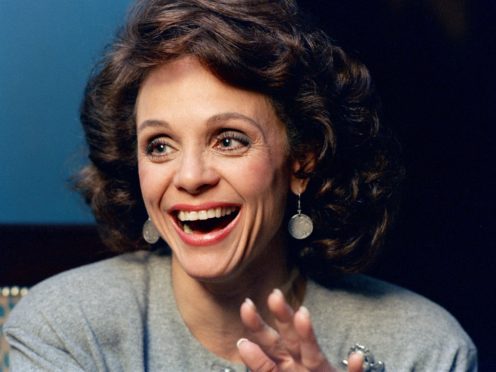Valerie Harper who starred as the brash, self-deprecating Rhoda Morgenstern on back-to-back hit sitcoms in the 1970s, has died.
She had been battling cancer for years, and her husband said recently he had been advised to put her in hospice care.
Harper was a star on The Mary Tyler Moore Show, then the lead of her own series, Rhoda, and died aged 80.
She won three consecutive Emmys as supporting actress on The Mary Tyler Moore Show and another for outstanding lead actress for Rhoda, which ran from 1974-78.
Beyond awards, she was immortalised — and typecast — for playing one of television’s most beloved characters, a best friend the equal of Ethel Mertz and Ed Norton in TV’s sidekick pantheon.

In 2013, she first revealed that she had been diagnosed with brain cancer and had been told by her doctors she had as little as three months to live.
Some responded as if a family member were in peril but she refused to despair.
“I’m not dying until I do,” Harper said in an interview on NBC’s Today show, adding: “I promise I won’t.”
Harper was a chorus dancer on Broadway as a teenager before moving into comedy and improv when, in 1970, she auditioned for the part of a Bronx-born Jewish girl who would be a neighbour and friend of Minneapolis news producer Mary Richards on a new sitcom for CBS.
It seemed a long shot for the young, unknown actress. As she recalled: “I’m not Jewish, not from New York, and I have a small shiksa nose.”
But Harper, who arrived for her audition some 20 pounds overweight, may have clinched the role when she blurted out in admiration to the show’s tall, slender star: “Look at you in white pants without a long jacket to cover your behind!”
It was exactly the sort of thing Rhoda would say to Mar, as Harper recalled in her 2013 memoir, I, Rhoda, and she was signed without a screen test.
Of course, if CBS had gotten its way, Rhoda might have been a very different character with a much different actress in place.
As The Mary Tyler Moore Show was being developed, its producers were battling a four-point decree from the network, which insisted that the nation’s TV viewers would not accept series characters who were divorced, from New York, Jewish or have moustaches.
The producers lost on having Mary Richards divorced – instead, she had been dumped by her long-time boyfriend – but with Rhoda they overrode the network on two other counts.
The show that resulted was a groundbreaking hit, with comically relatable Rhoda one big reason.
As The Mary Tyler Moore Show evolved, so did Rhoda. Rhoda trimmed down and glammed up, while never losing her comic step.
A spinoff seemed inevitable and in 1974, Rhoda was dispatched from Minneapolis back home to New York City, where she was reunited with her parents and younger sister in a new sitcom that costarred Nancy Walker, Harold Gould and Julie Kavner.
